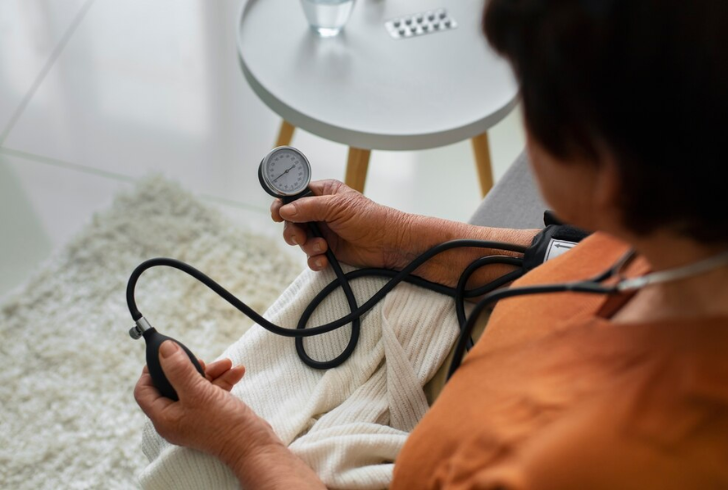Heart disease is a significant concern worldwide, with millions affected each year. Understanding how to assess the risk of heart blockage from the comfort of your home is crucial for early detection and prevention.
In this comprehensive guide, we’ll explore how to check heart blockage at home. By understanding these methods, you’ll be empowered to take proactive steps towards a healthier heart.
Understanding Heart Blockage

Heart blockages, also known as coronary artery disease, occur when the blood vessels that supply the heart with oxygen and nutrients become narrowed or blocked by a buildup of plaque. This buildup restricts blood flow to the heart, leading to various complications, including heart attacks and strokes.
Signs and Symptoms of Heart Blockage
Symptoms of heart blockage can vary from person to person, but common signs include:
- Chest Pain: Discomfort or pressure in the chest, which may radiate to the arms, neck, jaw, or back.
- Shortness of Breath: Difficulty breathing, especially during physical activity or when lying down.
- Fatigue: Feeling unusually tired or weak, even with minimal exertion.
- Dizziness or Lightheadedness: Sensation of feeling faint or dizzy, particularly when standing up quickly.
- Heart Palpitations: Irregular heartbeats or a sensation of rapid, pounding heartbeats.
If you experience any of these symptoms, it’s important to consult with your healthcare provider promptly. However, there are also simple methods you can try at home to assess your heart health.
How to Check Heart Blockage at Home

Monitoring your heart health at home can provide valuable insights into your overall well-being and help detect potential issues early on. Here are some effective methods for monitoring heart blockage at home:
1. Blood Pressure Monitoring
High blood pressure is a significant risk factor for heart disease, making regular blood pressure monitoring essential. Invest in a reliable blood pressure monitor and track your readings regularly. Aim for a blood pressure reading of less than 120/80 mm Hg, as recommended by healthcare professionals.
2. Cholesterol Testing
High cholesterol levels contribute to the buildup of plaque in the arteries, increasing the risk of heart blockages. Consider investing in an at-home cholesterol testing kit to monitor your cholesterol levels regularly. Aim for a total cholesterol level of less than 200 mg/dL, with LDL (bad) cholesterol levels below 100 mg/dL.
3. Electrocardiogram (ECG) Devices
Advancements in technology have made it possible to perform electrocardiograms (ECGs) at home using portable devices. These devices can detect abnormal heart rhythms and provide valuable information about your heart’s health. Consult with your healthcare provider to determine if an at-home ECG device is suitable for you.
4. Heart Rate Monitoring
Monitoring your heart rate can help identify irregularities that may indicate underlying heart issues. Wearable fitness trackers and smartwatches equipped with heart rate monitoring capabilities make it easy to track your heart rate throughout the day. Pay attention to any significant fluctuations or irregular patterns and consult with your healthcare provider if you have concerns.
5. Lifestyle Modifications

In addition to monitoring physical indicators of heart health, making lifestyle modifications can significantly reduce the risk of heart blockages. Incorporate heart-healthy habits such as:
- Eating a balanced diet rich in fruits, vegetables, whole grains, and lean proteins
- Engaging in regular physical activity, such as brisk walking, swimming, or cycling
- Avoiding tobacco products and limiting alcohol consumption
- Managing stress through relaxation techniques such as meditation or yoga
By adopting these lifestyle changes and monitoring your heart health regularly, you can take proactive steps to prevent heart blockages and maintain optimal cardiovascular health.
The Bottom Line
Understanding how to check heart blockage at home is essential for early detection and management. While home tests can’t replace professional medical advice, they can help you stay proactive about your heart health.
If you notice any unusual symptoms or changes, don’t hesitate to seek medical attention. Your heart deserves the best care, so listen to it, monitor it, and take action when needed.





